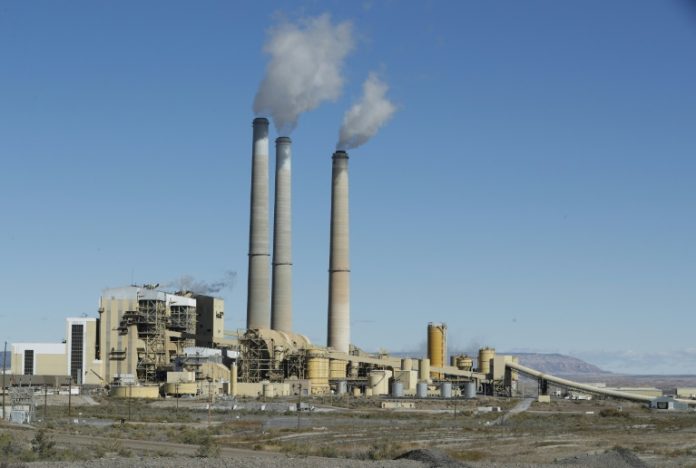More than 11,000 scientists warned Tuesday of “untold suffering” due to global warming, even as another team said Paris carbon-cutting pledges are “too little, too late”.
The European Union, meanwhile, confirmed that last month was the warmest October ever registered, fast on heels of a record September and the hottest month ever in July.
Three-quarters of national commitments under the Paris climate accord to curb greenhouse gases will not even slow the accelerating pace of global warming, according to a report from five senior scientists.
The sobering assessment came a day after President Donald Trump formally notified the United Nations of the US withdrawal from the 2015 Paris climate pact, triggering concerns of how other nations might react.
“With few exceptions, the pledges of rich, middle-income and poor nations are insufficient to address climate change,” said Robert Watson, who chaired both the UN Intergovernmental Panel on Climate Change (IPCC) and the UN’s science body for biodiversity.
“As they stand, the pledges are far too little, too late.”
In parallel, more than 11,000 scientists sounded a five-bell alarm in the peer-reviewed journal BioScience, noting that the world had failed to act on global warming despite the accumulation of evidence over 30 years.
“We declare, clearly and unequivocally, that planet Earth is facing a climate emergency,” the statement said.
Emissions of the gases warming Earth’s surface must drop 50 percent by 2030 and to “net zero” – with no additional carbon entering the atmosphere by mid-century — if the Paris treaty’s goal of capping warming at 1.5 to 2.0 degrees Celsius is to be met, the IPCC concluded last year.
And yet 2018 saw unprecedented global carbon pollution of more than 41 billion tonnes, two percent higher that 2017, also a record year.
Global temperatures have increased 1 C above pre-industrial levels – enough to boost the impact of deadly heatwaves, floods and superstorms – and are on track to rise another two or three degrees by the end of the century.
“Failing to reduce emissions drastically and rapidly will result in an environmental and economic disaster,” said James McCarty, a professor of oceanography at Harvard University, and co-author of the analysis of voluntary Paris pledges to reduce carbon pollution.
Just over half of greenhouse gas emissions from power, industry, agriculture and deforestation – the main drivers of global warming – came from four nations last year: China, the United States, India and Russia.
Accounting for 13.1 percent of the total, the US has turned its back on the Paris deal.
“China and India could say ‘damn it, we’re going to demonstrate to the world that we are climate leaders’,” Watson told media
“Or they could say ‘if the US is not going to do it, we’re not going to either’. It could go either way.”
China has said it will lower carbon intensity and peak emissions by about 2030.
But the size and staggering growth of its economy will likely overwhelm such marginal improvements, the scientists said.
At 29 percent of the global total, China alone pumps out more CO2 than the next three nations combined, though about 13 percent of those emissions are generated by exports destined for rich nations, recent research has shown.
India, which is ramping up both renewable energy and carbon-intensive coal-fired power, accounted for seven percent in 2018, and Russia – which has made no pledge at all – added 4.6 percent.
The efforts of the world’s top four emitters was deemed “insufficient”, according to the report.
All told, nearly three-quarters of 184 registered pledges were judged inadequate to stop climate change from continuing to accelerate in the next decade.
All but a handful are unchanged since being submitted in 2015 and 2016.
Among major economic blocs, only the European Union, with its 28 member states, got a passing mark.
“The EU is clearly in the lead in trying to address the climate crisis,” Watson said.
The emissions of the world’s poorest nations have been and continue to be negligible, but steps must be taken today to shape their energy futures.
“Sooner or later, they will start to grow, and we don’t want them to become dependent on cheap fossil fuel energy,” Watson noted.
“They need financial and technical assistance.”
Under the Paris treaty, developing nations are to receive $100 billion annually from next year to help curb climate change and cope with its impacts.
















